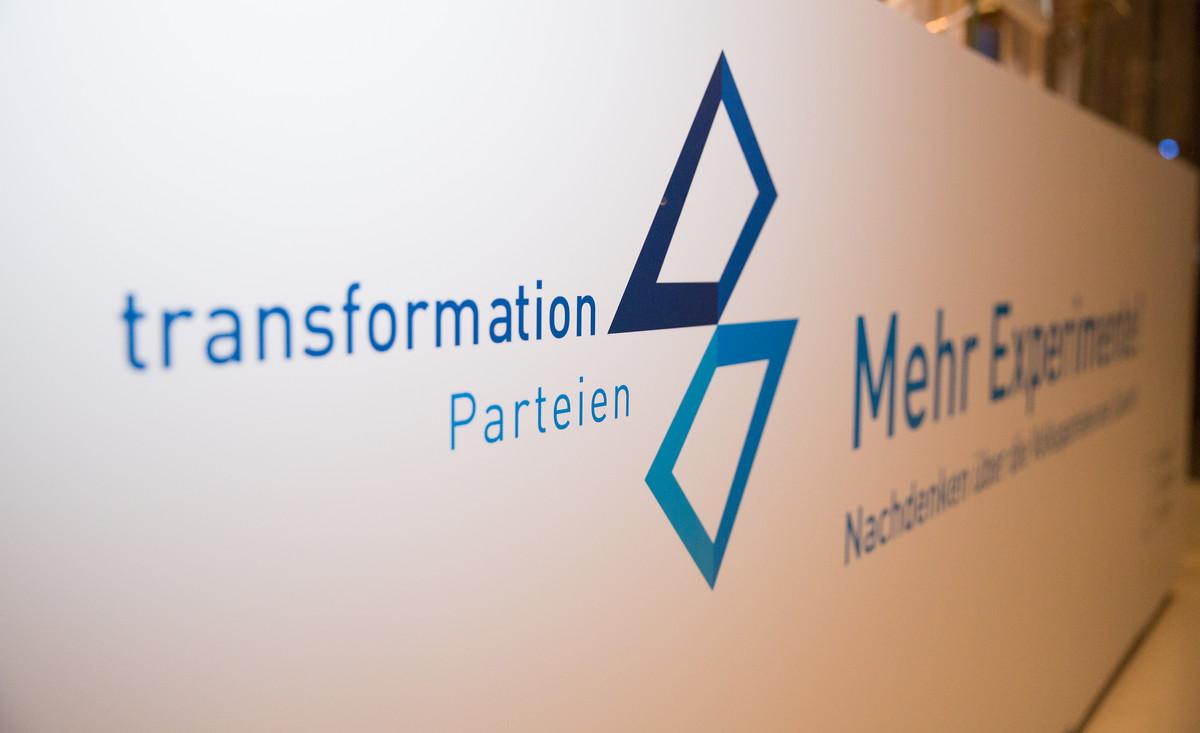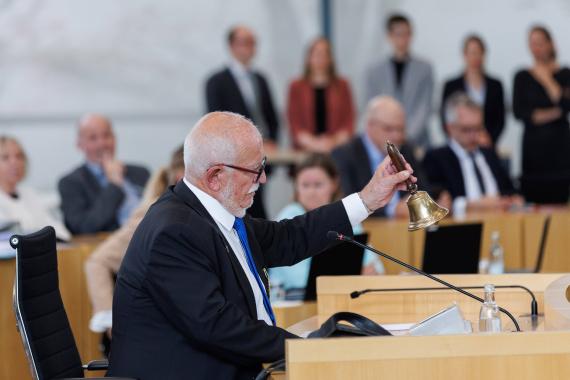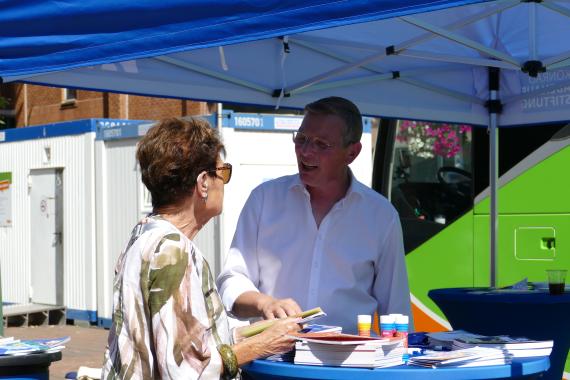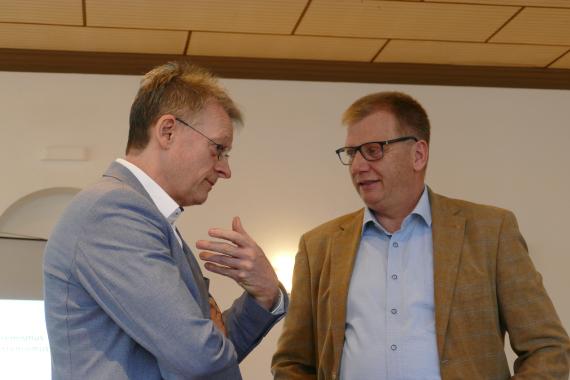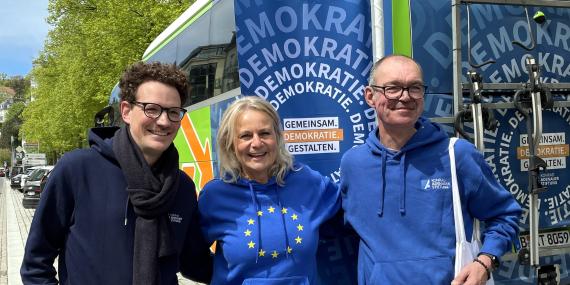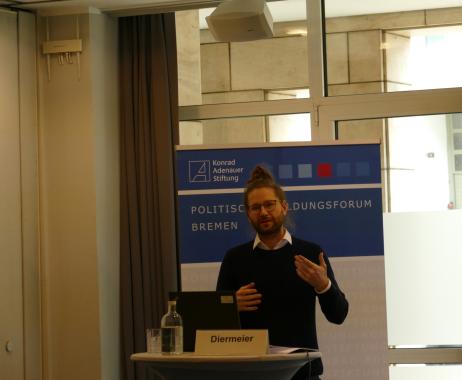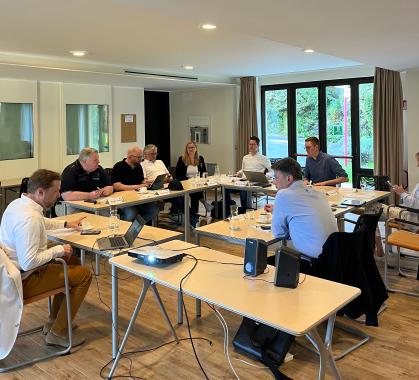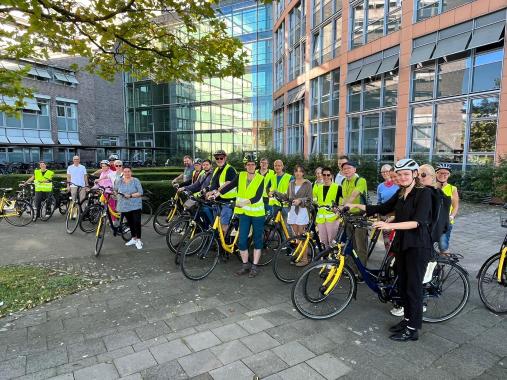Parties make politics, 'user-friendly'.
At a glance
- The role of parties is to liaise between the state and society. They represent people with similar views, pool interests and translate these into political solutions.
- Party systems are not static. Individual parties often split into different groups, become newly founded or go into decline.
- Mainstream parties are an anchor of stability for democracies. They make political offers to the society as a whole and contribute towards effective governments and party systems.
- Political change in many democracies and the advancing polarisation and fragmentation of many party systems confront many mainstream parties with increasing challenges.
- Political success requires adaptability and the willingness to renew and modernise. That is why we are searching for perspectives and approaches that will make mainstream parties fit for the future and ensure their continued success.
Content
1. Political parties are the hinge between state and society
2. Party systems are subject to constant developments and change
3. People’s parties of the future need to comprehensively renew themselves
4. Our offers and projects on the topic
5. Publications, events and media contributions on the topic
Democracy thrives on diverse engagement of citizens, on the collision of interests and opinions, on the search for the best solutions for our community. Participation works in both directions: On the one hand, it leads to people’s self-development and self-realisation, while also nurturing a unifying sense of responsibility towards society, on the other. This gives rise to cohesion and thus a foundation for stable democracies. It is the task of political parties to bring this democracy to life, and direct it towards solving present and future problems.
Political parties are the hinge between state and society
Parties combine interests and represent people with similar views. They enable permanent advocacy for certain positions, while also developing their proposed solutions in political competition and thus contributing to the best possible generally binding decisions.
The parties play a role in political opinion and decision-making. Through democratic party competition, they are part of the responsibility chain that binds those in power to the those being governed. That means parties are the interface between the state and society.
Party systems are subject to constant developments and change
Parties shape their environment, just like the environment changes parties and party systems. Time and again, there are new foundations, break-aways, or even the decline of individual parties or entire party systems. The Konrad-Adenauer-Stiftung is responsible for observing and analysing this development. This includes the interplay or change of political attitudes in the population, democratic institutions, electoral law and the media system.
People’s parties of the future need to comprehensively renew themselves
People’s parties that make political offers to the whole of society and provide solutions for the broad majority, contribute to a stable party system and governments capable of acting. Especially in light of fragmentation and polarisation, they are more necessary than ever. That is why the people’s parties must face up to changes in society. The renewal of party structures, communication approaches and internal party decision-making processes is indispensable. The Konrad-Adenauer-Stiftung searches for perspectives for people’s parties, which we consider to be an important instrument for civic participation, the balance of interests, orientation towards the common good and good governance.
Our offers and projects on the topic
Publication projects
In its work on the topic, the Konrad-Adenauer-Stiftung focuses its observations on developments in the German party landscape and the party system, on which a multi-part series of articles has been developed as part of a publication project. A second focus of our publications is on the consideration of party modernisation, which, among other things, is seen as an important prerequisite for adaptation to a changed environment and the continued existence of people’s parties.
Parties and Party Systems
Our publications on parties and party systems emphasise both current developments and long-term trends, which are analysed comparatively – nationally and internationally.
Party Modernisation
We understand party modernisation to be the further development of party organisation, campaigning capacity and communication, as well as party law and party financing.
 Fotolia
Fotolia
Website projects
Our website projects bundle studies and analyses on the topics “Electoral Analysis and Demoscopy” and “Extremism”. The Konrad-Adenauer-Stiftung’s extremism project also sees itself as a comprehensive knowledge platform with articles on completely different aspects of topics relating to “left-wing extremism”, “right-wing extremism”; “Islamism” and “conspiracy theories”.
Election Analyses and Demoscopy
The analysis of parties and the party systems is based on the findings of empirical electoral research. Its instruments make it possible to track changes in the strength of individual parties, to identify reasons for electoral decisions, but also to measure the impact of social changes on electoral behaviour, for instance.
Learn more about the project “Election Analyses and Demoscopy”
Extremism
Our defensive democracy fights extremism. Nevertheless, extremist parties have emerged on the on the fringes. Owing to the prominent position of parties in the Basic Law, the hurdles for party bans are high. Ultimately, combating parties that are directed against our liberal democratic basic order is not the task of security authorities and the judiciary alone, but also of the democratic parties during political debates. You will find information about the organisation and goals of extremist parties in Germany, among other things, in several articles on the pages of our extremism project.
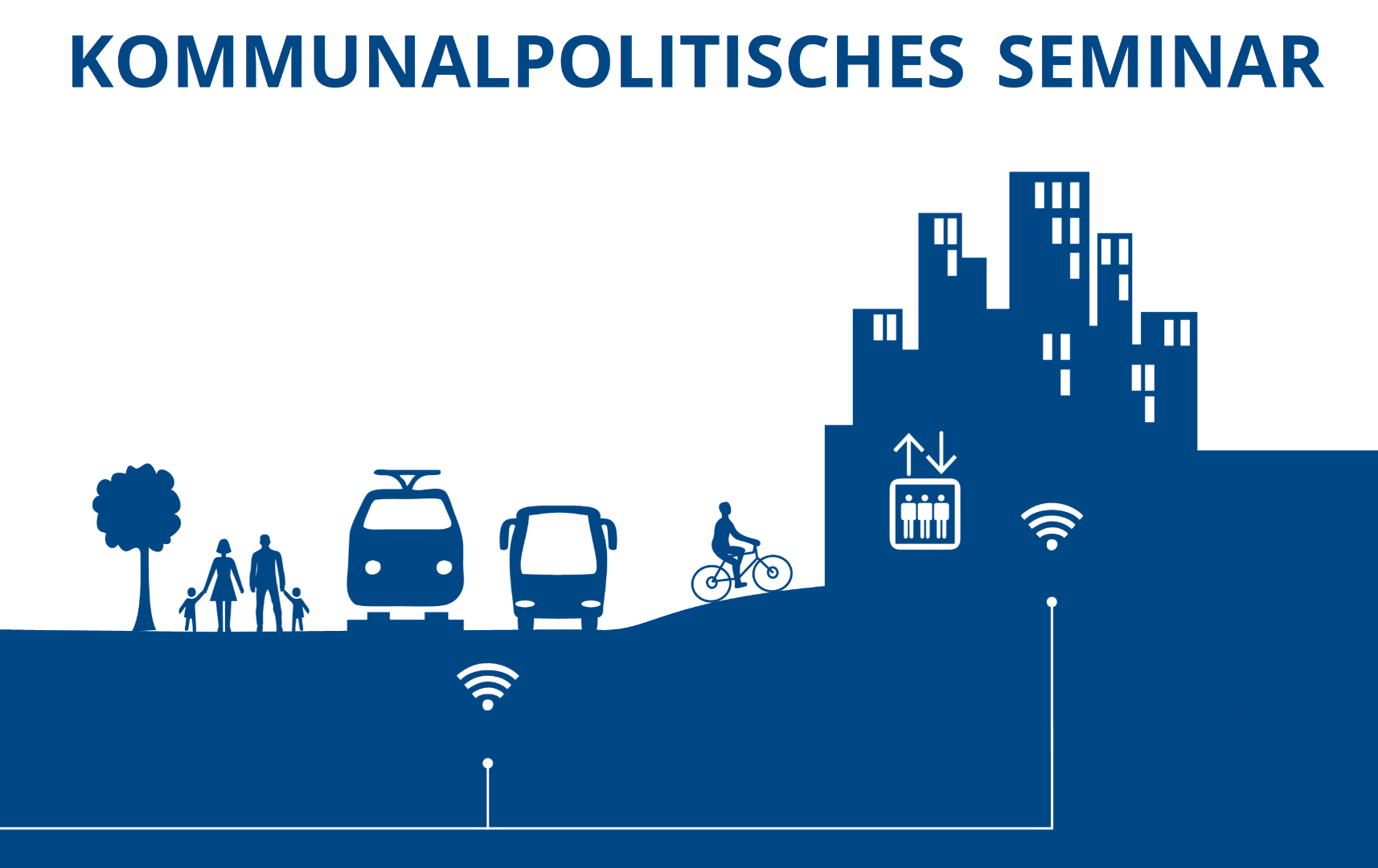 Konrad-Adenauer-Stiftung
Konrad-Adenauer-Stiftung
Event series
Political participation and parties in Germany are the subject of several events organised by the Konrad-Adenauer-Stiftung. Particularly worthy of note is the “Local Political Seminar” series, aimed at local political decision-makers and stakeholders.
Local Political Seminar
With our Local Political Seminar, we impart newcomers in local politics with the necessary foundational and orientation knowledge for successful local political work. At the same time, the Local Political Seminar represents a practice-oriented further training programme for experienced elected representatives and local political stakeholders.




